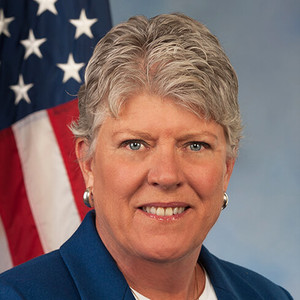Bill creates LCFS for aviation, expands SAF tax credits, funding

April 26, 2023
BY Erin Krueger
Reps. Julia Brownley, D-Calif., and Brad Schneider, D-Ill., on April 20 introduced the Sustainable Aviation Fuel Act, which aims to support the use of sustainable aviation fuel (SAF) via tax credits, new funding, and the establishment of an aviation-only Low Carbon Fuel Standard.
Following its introduction, the bill, H.R. 2747, was referred to the Committee on Energy and Commerce as well as the Committees on Transportation and Infrastructure; Armed Services; Science, Space and Technology; and Ways and Means. Brownly introduced similar legislation in late 2020 and 2021. Companion legislation was also introduced by Sen. Sheldon Whitehouse, D-R.I., in 2021.
Advertisement
The Sustainable Aviation Fuel Act would extend the Inflation Reduction Act’s clean fuel production tax credit for SAF through 2032. It would also create a new investment tax credit (ITC) to help finance new SAF facilities and infrastructure. In addition, the legislation would authorize $1 billion in federal funding for U.S. projects that produce, transport, blend or store SAF. Additional provisions of the bill would authorize $175 million in research funding to push the limits of existing SAF technology to try to lower SAF carbon emissions even more and would require the EPA to establish an aviation-only LCFS that would require a 50 percent reduction in the carbon intensity (CI) of aviation fuels by 2050 when compared to a 2005 baseline, with an intermediate requirement of a 20 percent reduction by 2030.
“In order to face the existential threat to the future of our planet head on, we need to be creative, be innovative, and act quickly to mitigate the devastating impacts of the climate crisis,” Brownley said. “Sustainable aviation fuel remains an important avenue for combating climate change since it is a key component to decarbonizing the aviation industry. However, we need to scale up its production and distribution if we are to achieve our climate goals. That is why I am so pleased to join Congressman Schneider in, once again, introducing the Sustainable Aviation Fuel Act, which will help meet the evolving needs of the aviation industry and keep up with the demands of the rapidly intensifying climate crisis.”
“Air travel has changed the world and will be a growing part of our future,” Schneider said. “It is imperative for America to confront the existential challenge of climate change by making air travel cleaner. Sustainable aviation fuel can halve carbon emissions while also enabling more travel and commerce, a win-win for Americans today and our future generations. We made incredible progress advancing SAF with the passage of the Inflation Reduction Act, and I’m proud to continue that work with my friend Congresswoman Brownley today as we introduce the Sustainable Aviation Fuel Act. Implementing sustainable aviation fuels is the single most important step the aviation industry can take to combat climate change, and I’m excited to support the clean jobs that come with it.”
Advertisement
Related Stories
The USDA has announced it will delay opening the first quarterly grant application window for FY 2026 REAP funding. The agency cited both an application backlog and the need to disincentivize solar projects as reasons for the delay.
Neste and DHL Express have strengthened their collaboration with the supply of 7,400 tons (9.5 million liters) of neat, i.e. unblended, Neste MY Sustainable Aviation Fuel to DHL Express at Singapore Changi Airport starting July 2025.
CoBank’s latest quarterly research report, released July 10, highlights current uncertainty around the implementation of three biofuel policies, RFS RVOs, small refinery exemptions (SREs) and the 45Z clean fuels production tax credit.
The U.S. Energy Information Administration maintained its forecast for 2025 and 2026 biodiesel, renewable diesel and sustainable aviation fuel (SAF) production in its latest Short-Term Energy Outlook, released July 8.
XCF Global Inc. on July 10 shared its strategic plan to invest close to $1 billion in developing a network of SAF production facilities, expanding its U.S. footprint, and advancing its international growth strategy.
Upcoming Events










